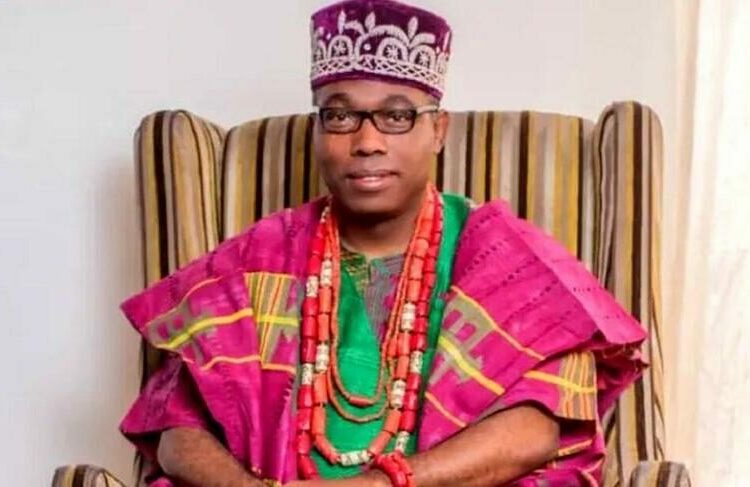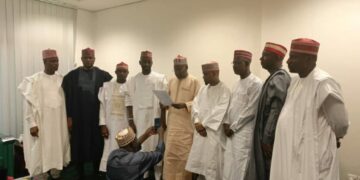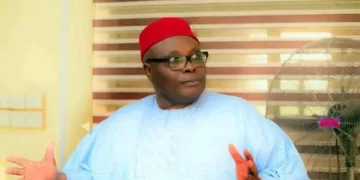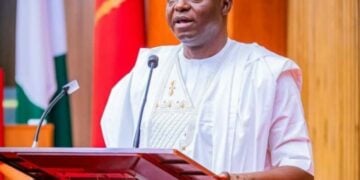In his recent trip to Brazil, President Bola Tinubu said his administration’s reforms have been tough, but like a bitter medicine, once the fever is gone, you will know that the cure was worth it. What’s your perception of that statement?
Well, I’m happy that the president is going around the world. I’m happy that he went to Brazil, because if ever his policy life is going to change, we will see whether he changes from Brazil. His going to Brazil is the equivalent of Saul becoming Paul, because in Brazil, what the Workers’ Party did to become what they are today, and the President was happy about it; he even posed the question: what do they have that we don’t have? And I have the answer.
What they have is good leadership and that’s what we don’t have yet. What they have is a poverty reduction manifesto and a set of programmes and policies. If you look at Bolsa Familia, which reduced poverty by 27 percent in Brazil in four years under President Lula da Silva’s government, it is the opposite of ‘subsidy is gone’ that increased poverty exponentially.
If you look at the way Petrobras is run, compared to the way our President has been running the NNPC, they are opposites. If you look at where Brazil gets its strength from, Brazil is the third-largest economy in America. In fact, by purchasing power parity, Brazil is next to the USA.
So, they have a bit of a mixed economy. The government is participating, the private sector is participating. They have indigenous industries, arising from agriculture, coffee, soybeans, and all of that.
Then they have the high end with aeronautics, defense, and all of that. So, the same country that makes a lot of money producing aircraft like Embraer and other companies is making more money just producing plain soybeans. So, the economic policy of President Tinubu is the opposite of the one that has succeeded in Brazil.
So, I’m happy that he’s there because by going there; he will see how wrongheaded his own policies are. On the other hand, I am not happy that he went there to spend all that money when the ruler is here. He could have spoken to me. He could have looked at the Social Democratic Party’s manifesto. He used to be a member of the SDP in the good old days. So, why are you leaving the Brazilian type of manifesto, which is available in Nigeria, and then you are going to Brazil as a tourist to be in awe of the majesty of Brazil and the Brazilian economy as if it is by magic? It is by policy.
Look at them. The Central Bank of Brazil is crying because of 4.5 percent inflation. We are celebrating 22 percent inflation, which in reality is 30 percent.
Brazil says it should not be at 3 percent. You look at it clearly; Brazil pays people money to go to school. If you study Posta Familiar very well, a family that puts their children in school, does immunization, does all of that, is guaranteed not to see poverty.
And Brazil is struggling to make sure that the wealth it has is better distributed. So, they acknowledged the fact that the problem of Brazil is not about making more money, it is about allocating efficiency that has social consideration. That is to say, they want to distribute their wealth in a better way to make everybody more productive.
Brazil has five percent unemployment. We are having over 30 or 40 percent, depending on how you look at the statistics. So, how can you now say, I am now in Brazil as a tourist, how did they make it here? So, it is like the person who does not keep good health, who does not take a shower, who does not clean the environment, looks at his neighbour’s house and says, Why do you have to clean? Why is your dress so white? Why are all your children healthy? Just adopt that healthy policy.
So, it is a good discussion and it is a discussion I am willing to have with the President, partisanship aside. You can stay in the government and I stay where I am in the SDP, but we can still have this conversation as to how Brazil managed it because everything that happened to Brazil, happened to us.
We have seen some critical policies made by this administration. Do you think the realities, promises, or hopes are in tandem with what is being projected?
I think he went to the wrong country. He should have gone to Argentina, because his own policy is closer to the one done in Argentina, not the one being done in Brazil. Thirdly, the problem is not breaking the egg.
You can ask women, How do you make an omelet? The easiest part is breaking the egg. You break the egg, and all the yolk and the white of the egg spill to the ground. If you break the egg, at that time you have no frying pan; you have not even lit the fire. So how are you going to make the omelet? So the problem is that half of our eggs are broken, and nobody has had breakfast. You keep breaking the egg, you don’t see the omelet.
You are saying that this government is not doing the right thing. Maybe they’ve put in place the right policies, but they are not implementing them the right way. Is that what you are saying?
I am not just saying that President Tinubu’s government is not doing the right thing. Some governments don’t do the right thing. But I’m saying that they are not just doing the right thing, they are actively doing the bad thing. And the reason I’m able to say that, is that the President may disagree with the policy of the SDP. We raised the issue of farewell to poverty and insecurity, and we said you have to make a social investment. And we said that you can grow your GDP by making social investments.
He is trying to grow his own GDP by making social divestment and hoping that Brazilians, because I heard him calling Petrobras to come here, he is hoping that Brazilians, other people who have made social investments at home, and have redeveloped that social investment, are going to bring their own money to come and make foreign investment here. The policy is wrong.
The third reason I think the policy is wrong is that after criticizing the SDP or ignoring the SDP manifesto here, he is praising Brazil. So Brazil is the benchmark for today’s discussion. I agree with Channel TV.
You can organize a session where you bring Wale Edun (Nigeria’s Finance Minister), you bring all the economic teams of the APC, and you bring me, and you bring the SDP. We can have a debate for two hours in your session; if they can pay half, we can pay half.
And let us put these policies and explain them to the Nigerian people.
They are getting their own policies wrong in five ways. One, they are behaving as if poverty can increase, and economic growth can also increase at the same time. It can’t happen. The journey of poverty must be inversely correlated with the journey of economic growth. So, if you grow your economy, poverty must reduce. How do you reduce poverty? There are three ways to reduce poverty. One, you do immediate employment for people. You have to configure most of your policies to include employment. Second, you do social investment such as housing, health care, education, infrastructure, and basic infrastructure for people.
That is why I said he should go and study Bolsa Família; that is the programme that saves Brazil. Thirdly, you must have systems in place for macroeconomic management, and you cannot cheat in that kind of examination. You must immediately tell the Governor of the Central Bank, a gentleman, to meet with the Minister of Finance. By the middle of my term, I want inflation to be single-digit.
If you can’t do it, leave my job, let me find somebody else, because you have to make inflation single-digit. You have to reduce unemployment to a single digit.
You must look at those two things, and you must increase productivity. So agricultural productivity is coming down, unemployment is rising, inflation is rising, and poverty is blooming. And then you go to Brazil and say, God loves Brazil more than us, or what? Or you’re asking the question: what do they have that we don’t have? They have common sense, they have good leadership, they understand economics, and they don’t want to cheat the economy.
They want to study macroeconomic indicators and make sure that the policies can move the needle. So it’s like you’re buying fuel into your car, you watch the gauge. If you’re buying fuel inside your car, and the gauge is still empty, you ask, is the gauge faulty, or are they cheating you? Now you cannot say, I’ve spent 200,000 to fill the tank of a Land Cruiser, and the gauge is still empty, or less than one quarter.
You say, What happened? So they are spending money, they are raising a nominal increase in money; they are pumping money into the sub-national, into the state government, and all of that. They are spending all the money on certain invisibles, and they are happy that the economy is expanding, but they are not looking at the deliverables and the outcomes. That is what they are doing wrong.
I will have more time, I will break it down for them, sector by sector, aspect by aspect, quarter by quarter, and I will tell them, medium term expenditure framework, and I will analyze it, so that they will see a the position. They will realize that they are not just going to Brazil, they are going away.
Ahead of the 2027 election, politicking has begun in earnest. You saw what the PDP has done by zoning the presidential ticket to the south. What was your initial view when you heard that news?
Well, that’s what they should have done in 2023, because there is a popular demand that there should be equity in the country. So, they have this, at least from the elitist point of view, they have this north-south rotation that they’re doing. So, my only concern is that when it goes to the north, they bring the worst person.
When it comes to the south, they also bring the worst person. But if it can be done positively, that when it goes to the north, they bring the best person, so you are voting for them not just because they are from the north, but because they are good for the job. And if it’s the turn of the south, you look for the best candidate also.
So, I think, the party can correct its mistake, because the idea of rotation actually came from PDP. They were the ones who brought the idea of turn by turn Nigeria Limited, as Chief Bode George would call it.
So, now that they are finally finding their way, they should not assume that that’s the only problem Nigerians have with them.
The problems we have with them is not just the North-South issue, it is the 16 years of bad governance. The luck that PDP has is that as bad as their government was, APC managed to equal them or even top them in mismanagement. Otherwise, Nigerians were not happy with the 16 years of PDP, and I think we haven’t forgiven them.
So, it’s good that they’ve done this rotation thing, so to make it easier for them to allow people to have more substantive arguments as to how to run the government. But I don’t think Nigerians want to see PDP in power.





